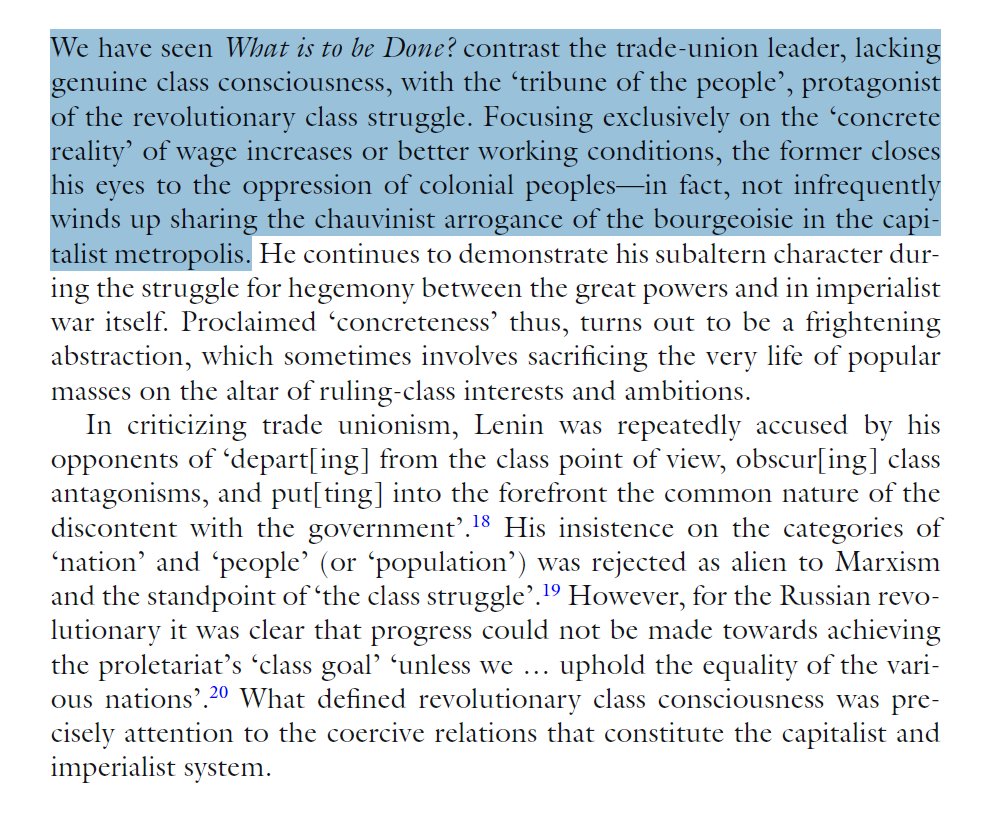Don't know about the 1789 revolution, but Marx wrote 'The Eighteenth Brumaire of Louis Bonaparte' (about the 1848-1852 situation in France), and 'The Civil War in France' (about the commune).
cucumovirus
I appreciate you reposting these threads to lemmygrad now as the twitter algorithm usually seems to not want to show them to me.
This article by Fayez A. Sayegh is an excellent account of the history of zionism and the earlier periods of colonization in Palestine:
Also: https://redsails.org/the-pitfalls-of-liberalism/
The most perturbing question for the liberal is the question of violence. The liberal’s initial reaction to violence is to try to convince the oppressed that violence is an incorrect tactic, that violence will not work, that violence never accomplishes anything.
The liberal is so preoccupied with stopping confrontation that he usually finds himself defending and calling for law and order, the law and order of the oppressor. Confrontation would disrupt the smooth functioning of the society and so the politics of the liberal leads him into a position where he finds himself politically aligned with the oppressor rather than with the oppressed.
The reason the liberal seeks to stop confrontation — and this is the second pitfall of liberalism — is that his role, regardless of what he says, is really to maintain the status quo, rather than to change it.
Because many of them don't actually support Palestinian liberation, and are, as you suggest, still holding on to their liberalism even if they claim not to. Their support manifests only in an empty verbal declaration without any actual understanding.
Take a look at this article which illustrates and analyzes the problem well. An excerpt:
Some people understand being in favour of something as a kind of thought act: it happens in one fell swoop in the realm of intentions, and it can be verified by a simple declaration of support. It is enough for me to declare I’m in favour of, for example, abolishing the patriarchy, or capitalism, for these people to believe me. But what if I’m in favour of a general objective and at the same time opposed to every specific step needed to achieve it? Let us start by imagining how this contradiction might play out in the context of a simpler problem than patriarchy or capitalism: water is leaking through a hole in my roof. I am in favor of the overall goal of stopping the leak, but I insist on some strange rules. For instance, I decide that only supernatural beings can handle the problem. Or I forbid anyone from walking on the roof while fixing the leak. Or people may walk on my roof, but I demand that they refrain from using ladders or any other tool to get up there. Or they may use a ladder, but only after climbing onto the roof, never before. So long as I am imposing such conditions, what does it matter that I profess my desire to solve the problem? No matter how much I see myself as enemy number one of the leak, in practice I am actually in favour of keeping it around. Therefore, just saying that I’m in favour of a given objective is not enough. My declarations carry weight only when I support them with a thorough understanding of the steps needed to reach that objective and when I allow these steps to be executed in the necessary order.
I agree with you. The shock can be useful during radicalization at first, but the point is to stop being shocked and understand how these things work rationally in order to change them. Similarly, I don't like how many are still shocked by some soc-dem politicians "betraying" us when it has always been clear that they've never been with us in the first place. Not being shocked anymore (unless it's out of a defeatist resignation) is a good thing because it means you understand how things actually work. We want people to move past shock to an understanding and action.
Check out these two twitter threads (thread 1, thread 2) and this article for a different reading of Marx's On the Jewish Question.
I think you're somewhat failing to take into account how much antisemitizam there was in Europe and how prevalent it was, especially in the 19th and 20th centuries. Marx is writing about Jews in Europe in the mid 19th century, and is responding directly to widespread antisemitic rhetoric - "The Jewish Question".
Anticommunists will always misrepresent us and everything we do, we don't need to pander to them in any way. There are plenty of other people that will listen to us and be open to our ideas. Liberals (active political liberals, not the average "apolitical" person in the west) are not a group we can radicalize and we shouldn't focus our efforts on them.
Also, the theory that people are brainwashed by propaganda is not scientific or Marxist and we shouldn't use it. It leads to a dead end in terms of tactics to fight propaganda. Check out the full article I linked above for a Marxist theory of how propaganda works.
I would say that What Is To Be Done? is one of Lenin's most important works, if anything I'd say it's underrated. Like (mostly) all of his works, it talks directly about the situation in Russia at the time, but that doesn't make it any less useful. You just have to extract the universal principles from the tactical particularity he's writing about.
WITBD? focuses on the need for organizing, and not just any kind, but actual revolutionary organizing with both theory and practice, for bringing together the proletariat with all other revolutionary classes and even individual intellectuals. It speaks against just focusing on a binary interpretation of class struggle (proletariat vs bourgeoisie), and instead it tells us to focus on any struggle that is revolutionary (anti-colonial struggles, gender liberation struggles, etc.).
Here's how Losurdo describes it in Class Struggle:

The Onion has always had good takes on israel.
https://www.theonion.com/the-onion-calls-on-israel-to-bomb-our-offices-in-case-1846912378

The claim that a triumphant will is all it takes to overcome it
No, the claim is that people have enough knowledge and access to information that they can debunk any piece of propaganda they see, but they make the rational choice not to and instead go along with it. This choice is not some free will idealistic choice, it happens due to the material conditions in which the people live and the social purpose of propaganda which lets them easily justify their dominant global position as a westerner. The point is that they don't have an actual excuse for "believing" propaganda, but that they go along with it mostly because they want to keep their privilege (or see it as a way to get some), even though on some level they know it's a bad thing.
I agree generally, especially in terms of material gain to these people and potential reparations, but I also think that personal guilt should be determined on a case by case basis. However, every racist white westerner screaming about Hamas terrorists right now, when plenty of people are sharing actual correct information, is definitely complicit and is purposefully ignoring the evidence he is being given. Similarly, the outrageous stories about the DPRK that are circulated by the various CIA outlets or Yeonmi Park are simply too ridiculous for anyone to actually believe and take seriously, yet until recently people mostly shared them with glee. People go along with them due to other reasons, not an actual belief. Stories about Xinjiang are also not shared because people actually care and tried to inform themselves about the situation, but only due to (real or perceived) material gain (or even just emotional satisfaction) that the people sharing them get.
I agree, and when talking about consumerism, I'm always reminded of these two great essays on it:
https://redsails.org/women-and-the-myth-of-consumerism/
https://redsails.org/the-logic-of-stupid-poor-people/
Also, Marx's own view of consumption is that it's a real social need which capitalism itself restricts only to the bourgeoisie (we could also add the labour aristocracy) while the vast majority cannot engage in consumption like they need to. Of course, the goal here isn't a form of bourgeois luxury, but the ability of everyone to live a fulfilling life.
Exactly, and there was quite a big debate around this in the early years after the October revolution and the founding of the USSR (as there seems to be every time a revolution manages to survive the initial time of great crisis and then needs to build up the forces of production and increase quality of life). After the horrors of WW1 and the civil war, both caused by capitalism, there was a long period of crisis which meant that no one really had a lot, and the little that people had, they had to all share equally. It was a sort of rationing program that was necessary during the wars. This, however, cannot be continued forever, and both Lenin and Stalin (and others) understood this. It's why the NEP was necessary, but these decisions caused outcry from some Soviet and even Wester European socialists who didn't understand the actual situation, but clung on to an abstract principle.
From Losurdo's 'Stalin: History and Critique of a Black Legend':